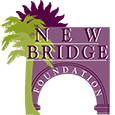 Ironically, a common request in drug and alcohol treatment centers is for drugs to treat addiction. In this two-part post, we’re going to discuss the medications approved for alcohol abuse and those approved for drug abuse. Currently, there are three drugs approved by the Food and Drug Administration (FDA) for alcohol abuse. None of these medications are prescribed to people who are still drinking alcohol. They are only prescribed to those who have already stopped drinking and are trying to maintain complete abstinence from alcohol.
Ironically, a common request in drug and alcohol treatment centers is for drugs to treat addiction. In this two-part post, we’re going to discuss the medications approved for alcohol abuse and those approved for drug abuse. Currently, there are three drugs approved by the Food and Drug Administration (FDA) for alcohol abuse. None of these medications are prescribed to people who are still drinking alcohol. They are only prescribed to those who have already stopped drinking and are trying to maintain complete abstinence from alcohol.
There are no medications on the market that are prescribed for people who are still drinking alcohol that will cause them to stop drinking. Instead, the drugs are meant to deter people from drinking or reduce and eliminate cravings.
- Disulfiram – Also known as Antabuse, this was the first medication approved for the treatment of alcohol dependence. People taking this medication will get sick if they drink, so the goal here is to deter people from using. One of the drawbacks is that an alcoholic could just choose not to take the medication on a day s/he planned to drink.
- Naltrexone – Also known as Revia and Depade, this medication is an opioid antagonist and works by blocking the “high” that individuals feel when they drink (or take opiates). An extended release form (usually injectable) of naltrexone is known as Vivitrol. According to research several alcohol drinking mechanisms are affected including reduced cravings and increased headache and nausea (that reduce the quantity of drinking).
- Acamprosate – Also known as Campral, is used to reduce alcohol cravings and prevent relapse and is the most recent medication approved for alcoholism treatment in the US. Although chemically different than naltrexone (it has agonist and inhibitory effects on brain receptors), studies show that they appear to have the same effectiveness. It can be used separately or in combination with naltrexone.
If prescribed, these medications are meant to be used as an adjunct to drug and alcohol treatment; they are not as successful for relapse prevention when used alone. Drug and alcohol treatment might include residential or inpatient, day treatment, intensive outpatient or individual counseling.







